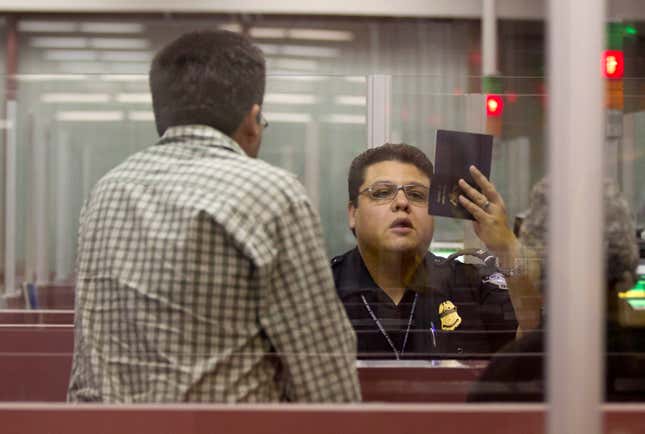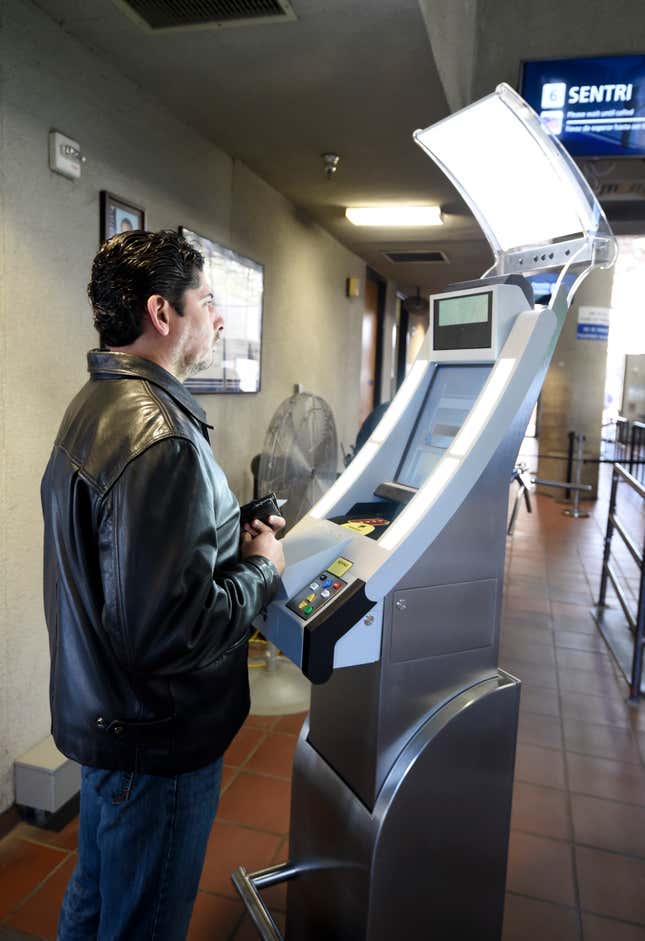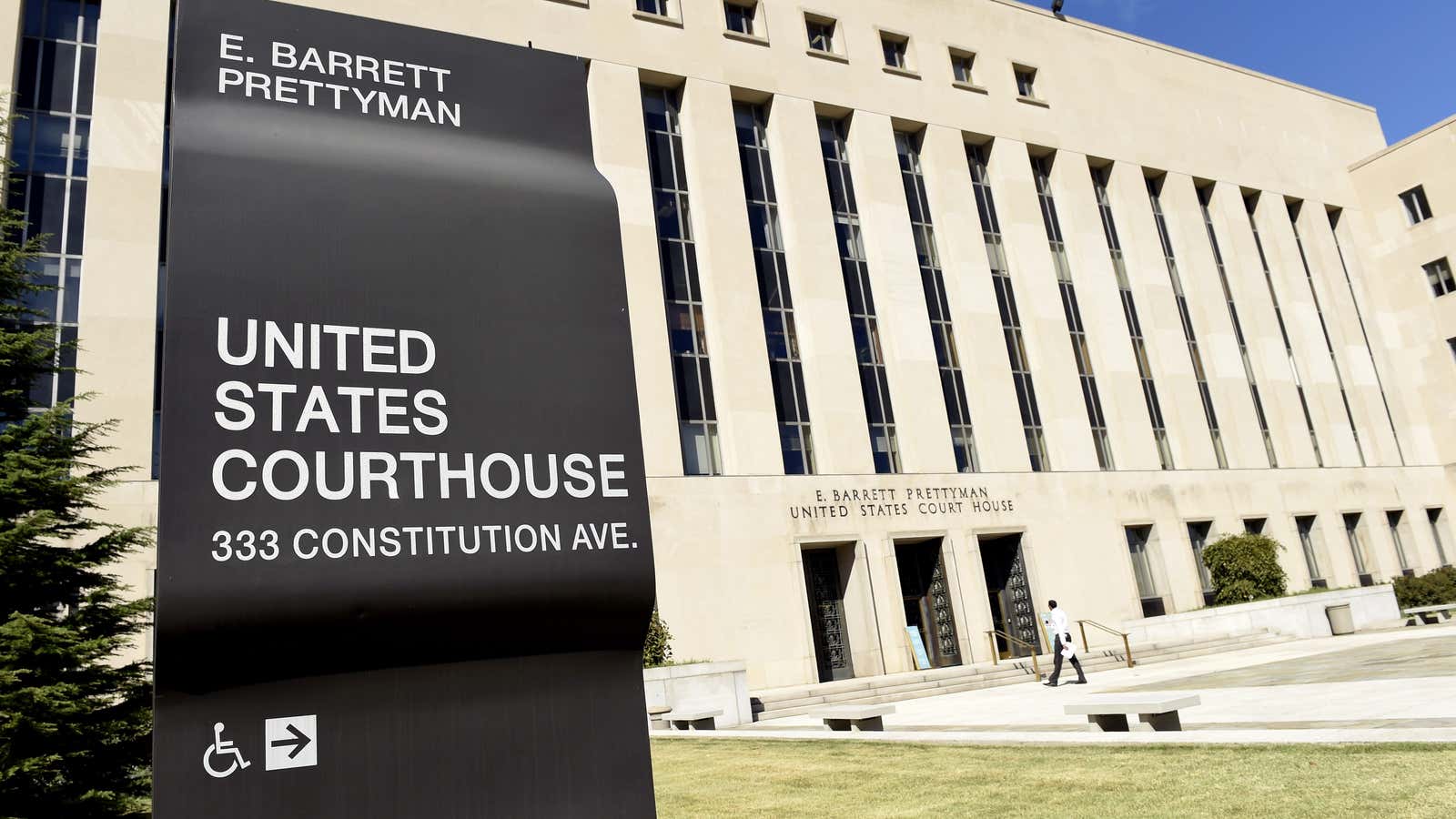Washington
I never thought it would take this long. It’s been more than two years since I first sought data from the US government about the people crossing the US border, by filing a Freedom of Information Act (FOIA) request.
By law the FOIA process is supposed to take between 10 and 40 days. As anyone who’s ever requested records can tell you, these limits are systematically ignored.
So 798 days later (due in part to government delays as well as my own), I had my day in court.
The two databases I wish to access, for reporting on the economic effects of various tourist groups, are the source of nearly every US government statistic on tourism and immigration.
When I initially sought the data, the US had a different president with different immigration and economic policies. But of course with the current president and the current immigration policies, the data is now relevant beyond my economic curiosities. It is essential to understanding the effects of the Trump administration’s proposed and implemented policies on the US economy.

However, those issues were never broached by judge Ketanji Brown Jackson, who is presiding over Yanofsky vs. Dept. of Commerce—as my case is known—in the federal district court here.
Regardless of the usefulness of the data, my case hinges on more technical interpretations of law. And those were the issues judge Jackson was tightly focused on during the nearly two hours of arguments.
One big issue is whether and how much the government can charge me for this data. They say $174,000. I say $0.
Unlike the time limits in the FOIA, the law’s stipulations on fees are much more strictly followed. As a journalist, the law entitles me to have fees waived under FOIA so that I am responsible only for the direct cost of duplication—in this case, the cost of a CD or hard drive. But the US Commerce Department is of the opinion that the data I seek is exempt from FOIA because it is authorized to charge for it, and thus it is allowed to force me to pay full price.
Scott Sroka, an assistant US attorney, disputed that I was ever asked to pay the $174,000, arguing instead that I was only presented with an order form. “We don’t know” what the fees would be, he said.
But had I filled out the order form for the data I requested, it would have come to a total of about $174,000, according to the prices published on the International Trade Administration’s website.

Jackson pressed the government to produce the statute that specifically authorized the government to charge fees for this data. Sroka cited three laws that taken together should be considered to be that statute.
Jackson pointed out that none of those three laws contains the words “records,” “documents,” “information,” or “fee,” but rather authorizes the “encouragement” of “contributions” for certain government services.
Jackson also sought to understand the methods the government uses to determine the level of fees from year to year.
“Some sort of means-testing is done” while setting the fees, Sroka said, after noting that the typical customers of this data are corporations like airlines.
“The agency is not a business,” the judge said. “They don’t own this information.”
In an email obtained by Quartz in a separate FOIA request, Ron Erdmann, the head of research in the office that controls this data, seemed to claim the data generates $500,000 in revenue annually. However, financial records released by the agency show that the data I’m after is rarely sold. Instead, reports derived from these datasets and others maintained by the office appear to generate the bulk of the fees referenced.
Katie Townsend, my lawyer from the Reporters Committee for Freedom of the Press, made clear to the court that I am not seeking the derived reports.
Another question at hand is what types of new arguments (if any) the government is allowed to make to the court. The lawyers representing me have argued that in cases like mine, other courts have instructed that neither party is allowed to raise new arguments supporting their position. Rather, they are bound to the arguments made to agency officials in administrative proceedings before a lawsuit was filed.
In my case, the government is relying solely on a new argument, claiming the rational contained in the closed administrative record was made in error. And the judge was receptive to allowing it. “I don’t understand why the court should be bound by an error at the administrative stage,” Jackson said, seemingly troubled at the prospect that my lawyers wanted to limit her judicial discretion.
It’s impossible for me to say how the judge will rule, or when. What I do know is that every day that this case sits unresolved is another day that the information grows stale. The data requested under my suit only covers 2011 through 2015.
The prospect of ending up back in court over future releases of the data was discussed at the hearing. In referencing one possible interpretation of the law, Townsend asked rhetorically, “Does that mean I’m going to be before you again?”
Judge Jackson raised her eyebrows, and the case remained open for another day.
Read more about Yanofsky v. Dept. of Commerce.
